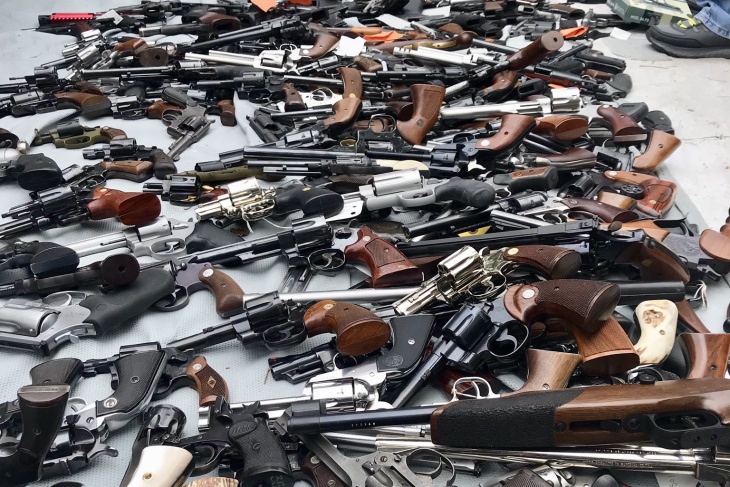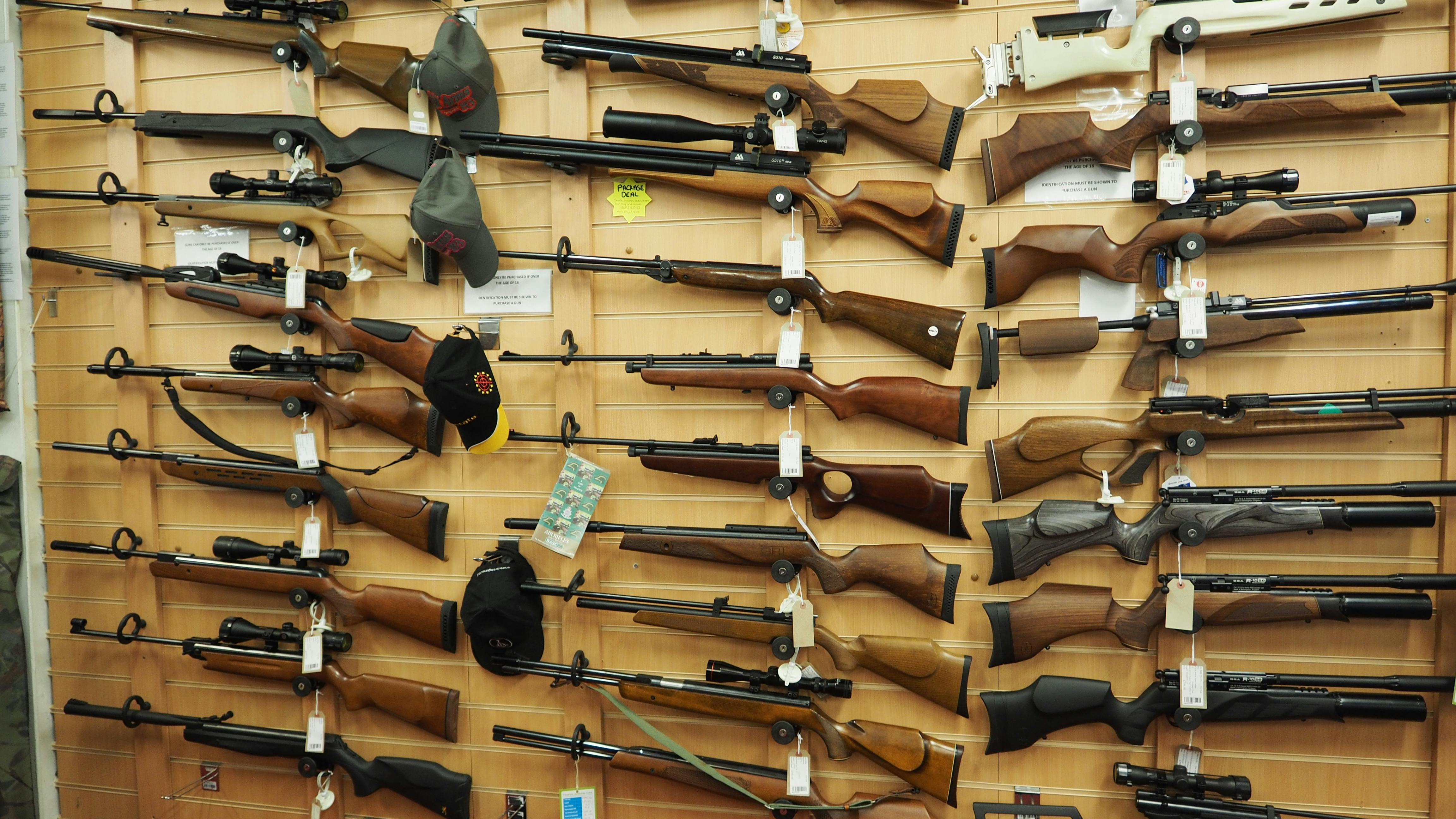Guns Lots Of Guns
Since the 2008 election of President Obama, the number of firearms manufactured in the U.S. has tripled, while imports have doubled. This doesn’t mean more households have guns than ever before—that percentage has stayed fairly steady for decades. Rather, more guns are being stockpiled by a small number of individuals. Three percent of the population now owns half of the country’s firearms, says a recent, definitive study from the Injury Control Research Center at Harvard University.
Here you can buy guns online, find guns for sale online, discover new guns, and get information about guns. Think of GunBroker.com as your gun spot for all things guns. The GunBroker.com marketplace goes beyond guns for sale, and offers hunting gear, gun parts / accessories, collectibles, and much more. You can build guns, head into the shooting range, or jump in the middle of waves of enemies to kill them all. From pistols to shotguns, you can use different weapons in these games. Play the coolest gun games for free at Kizi. Browse our big collection of online gun games to find the coolest gaming titles featuring firearms. Impact Guns is the gun shop for all your shooting needs. We offer a wide selection of firearms, including: handguns, shotguns, rifles, ammunition, rifle scopes and optics, as well as collectible machine guns and other NFA/Class 3 guns. The Matrix 1999.
So, who is buying all these guns—and why?
Guns Lots Of Guns Quote
The short, broad-brush answer to the first part of that question is this: men, who on average possess almost twice the number of guns female owners do. But not all men. Some groups of men are much more avid gun consumers than others. The American citizen most likely to own a gun is a white male—but not just any white guy. According to a growing number of scientific studies, the kind of man who stockpiles weapons or applies for a concealed-carry license meets a very specific profile.
These are men who are anxious about their ability to protect their families, insecure about their place in the job market, and beset by racial fears. They tend to be less educated. For the most part, they don’t appear to be religious—and, suggests one study, faith seems to reduce their attachment to guns. In fact, stockpiling guns seems to be a symptom of a much deeper crisis in meaning and purpose in their lives. Taken together, these studies describe a population that is struggling to find a new story—one in which they are once again the heroes.
WHATEVER HAPPENED TO HARD WORK?
When Northland College sociologist Angela Stroud studied applications for licenses to carry concealed firearms in Texas, which exploded after President Obama was elected, she found applicants were overwhelmingly dominated by white men. In interviews, they told her that they wanted to protect themselves and the people they love.
“When men became fathers or got married, they started to feel very vulnerable, like they couldn’t protect families,” she says. “For them, owning a weapon is part of what it means to be a good husband and a good father.” That meaning is “rooted in fear and vulnerability—very motivating emotions.”
But Stroud also discovered another motivation: racial anxiety. “A lot of people talked about how important Obama was to get a concealed-carry license: ‘He’s for free health care, he’s for welfare.’ They were asking, ‘Whatever happened to hard work?’” Obama’s presidency, they feared, would empower minorities to threaten their property and families.
The insight Stroud gained from her interviews is backed up by many, many studies. A 2013 paper by a team of United Kingdom researchers found that a one-point jump in the scale they used to measure racism increased the odds of owning a gun by 50 percent. A 2016 study from the University of Illinois at Chicago found that racial resentment among whites fueled opposition to gun control. This drives political affiliations: A 2017 study in the Social Studies Quarterly found that gun owners had become 50 percent more likely to vote Republican since 1972—and that gun culture had become strongly associated with explicit racism.

For many conservative men, the gun feels like a force for order in a chaotic world, suggests a study published in December of last year. In a series of three experiments, Steven Shepherd and Aaron C. Kay asked hundreds of liberals and conservatives to imagine holding a handgun—and found that conservatives felt less risk and greater personal control than liberal counterparts.
This wasn’t about familiarity with real-world guns—gun ownership and experience did not affect results. Instead, conservative attachment to guns was based entirely on ideology and emotions.
WHO WANTS TO BE A HERO?
That’s an insight echoed by another study published last year. Baylor University sociologists Paul Froese and F. Carson Mencken created a “gun empowerment scale” designed to measure how a nationally representative sample of almost 600 owners felt about their weapons. Their study found that people at the highest level of their scale—the ones who felt most emotionally and morally attached to their guns—were 78 percent white and 65 percent male.

“We found that white men who have experienced economic setbacks or worry about their economic futures are the group of owners most attached to their guns,” says Froese. “Those with high attachment felt that having a gun made them a better and more respected member of their communities.”
Guns Lots Of Guns Matrix

That wasn’t true for women and non-whites. In other words, they may have suffered setbacks—but women and people of color weren’t turning to guns to make themselves feel better. “This suggests that these owners have other sources of meaning and coping when facing hard times,” notes Froese—often, religion. Indeed, Froese and Mencken found that religious faith seemed to put the brakes on white men’s attachment to guns.
For these economically insecure, irreligious white men, “the gun is a ubiquitous symbol of power and independence, two things white males are worried about,” says Froese. “Guns, therefore, provide a way to regain their masculinity, which they perceive has been eroded by increasing economic impotency.”
Both Froese and Stroud found pervasive anti-government sentiments among their study participants. “This is interesting because these men tend to see themselves as devoted patriots, but make a distinction between the federal government and the ‘nation,’ says Froese. “On that point, I expect that many in this group see the ‘nation’ as being white.”
Investing guns with this kind of moral and emotional meaning has many consequences, the researchers say. “Put simply, owners who are more attached to their guns are most likely to believe that guns are a solution to our social ills,” says Froese. “For them, more ‘good’ people with guns would drastically reduce violence and increase civility. Again, it reflects a hero narrative, which many white men long to feel a part of.”
Stroud’s work echoes this conclusion. “They tell themselves all kinds of stories about criminals and criminal victimization,” she says. “But the story isn’t just about criminals. It’s about the good guy—and that’s how they see themselves: ‘I work hard, I take care of my family, and there are people who aren’t like that.’ When we tell stories about the Other, we’re really telling stories about ourselves.”
HOW TO SAVE A WHITE MAN’S LIFE

Unfortunately, the people most likely to be killed by the guns of white men aren’t the “bad guys,” presumably criminals or terrorists. It’s themselves—and their families.
White men aren’t just the Americans most likely to own guns; according to the Centers for Disease Control and Prevention, they’re also the people most likely to put them in their own mouths and pull the trigger, especially when they’re in some kind of economic distress. A white man is three times more likely to shoot himself than a black man—while the chances that a white man will be killed by a black man are extremely slight. Most murders and shoot-outs don’t happen between strangers. They unfold within social networks, among people of the same race.

A gun in the home is far more likely to kill or wound the people who live there than is a burglar or serial killer. Most of the time, according to every single study that’s ever been done about interpersonal gun violence, the dead and wounded know the people who shot them. A gun in the home makes it five times more likely that a woman will be killed by her husband. Every week in America, 136 children and teenagers are shot—and more often than not, it’s a sibling, friend, parent, or relative who holds the gun. For every homicide deemed justified by the police, guns are used in 78 suicides. As a new study published this month in JAMA Internal Medicine once again shows us, restrictive gun laws don’t prevent white men from defending themselves and their families. Instead, those laws stop them from shooting themselves and each other.
What are the solutions? That and many other studies suggest that restricting the flow of guns and ammunition would certainly save lives. But no law can address the absence of meaning and purpose that many white men appear to feel, which they might be able to gain through social connection to people who never expected to have the economic security and social power that white men once enjoyed.
“Ridicule of working-class white people is not helpful,” says Angela Stroud. “We need to push the ‘good guys’ to have a deeper connection to other people. We need to reimagine who we are in relation to each other.”